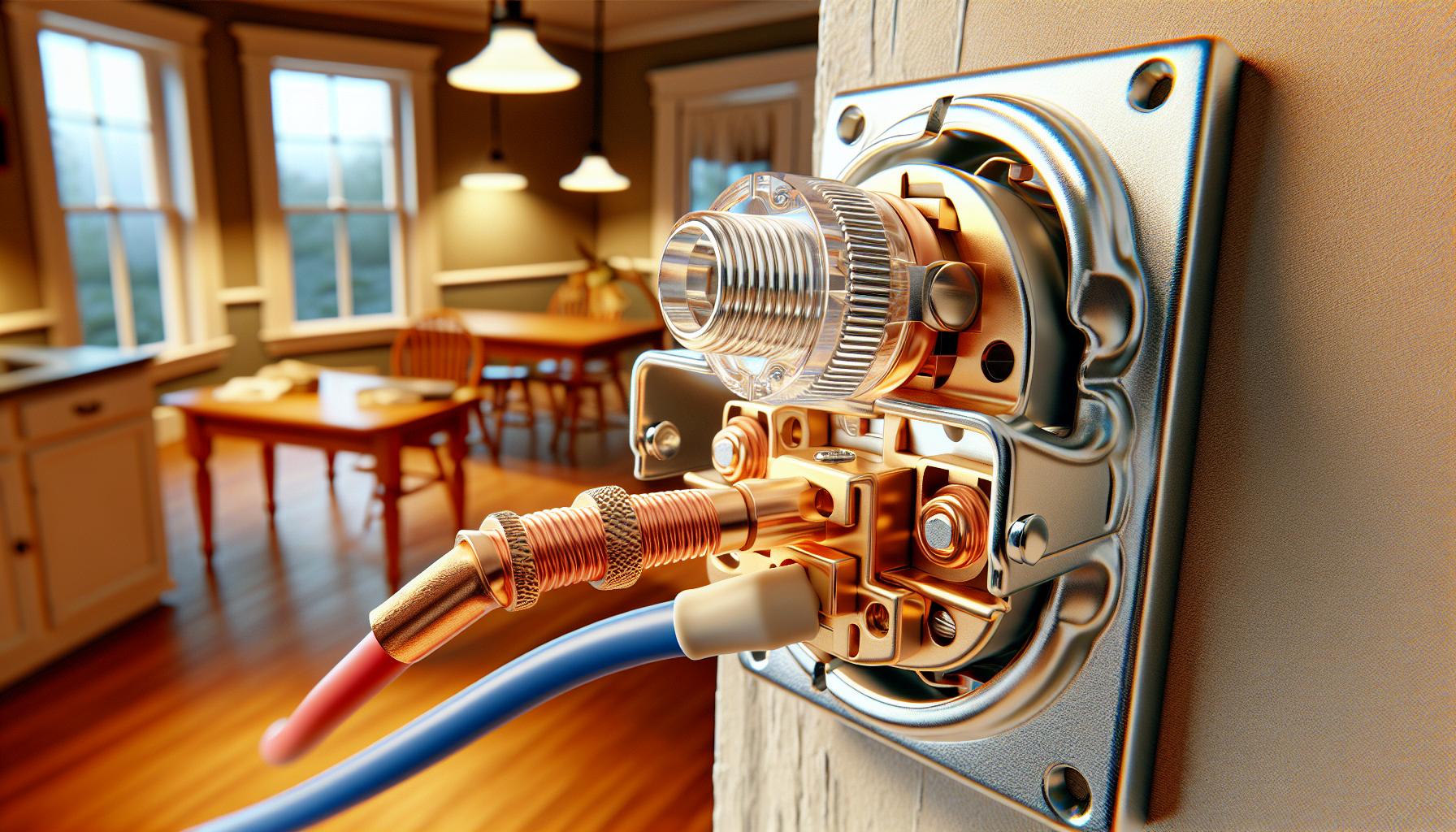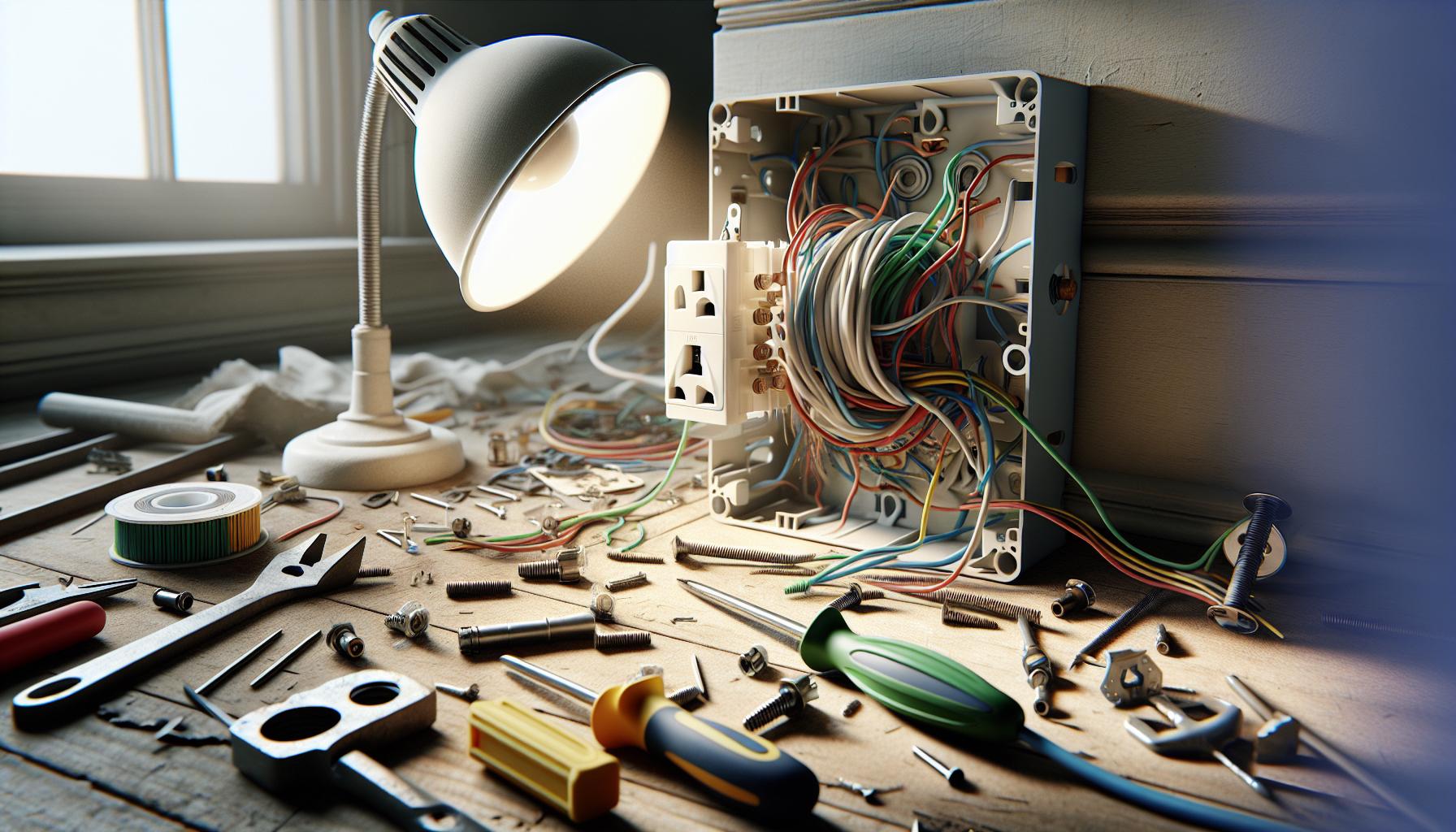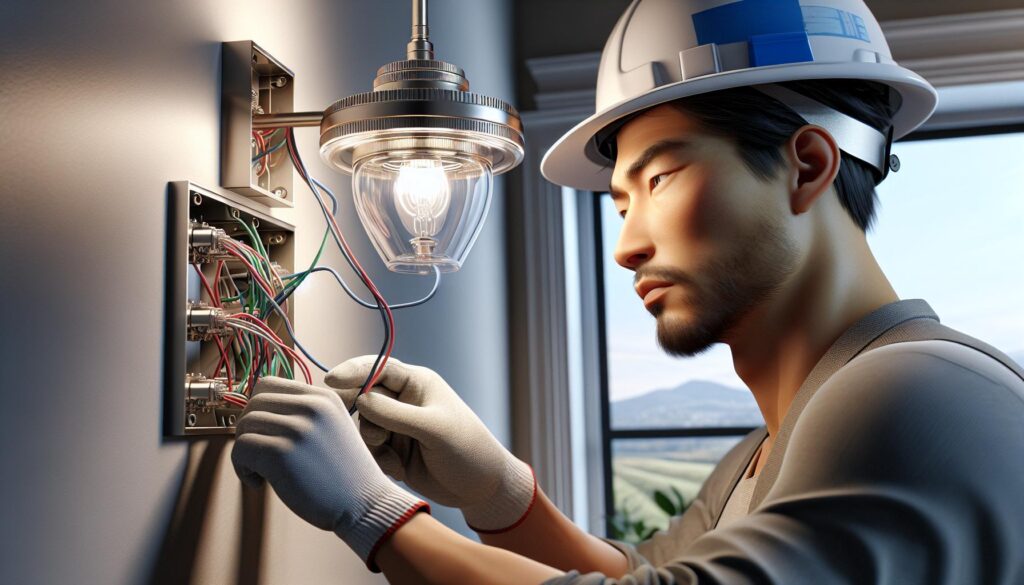When installing or replacing a light fixture, the presence of a ground wire is often taken for granted. However, what happens when there isn’t one? This situation raises important safety and functionality concerns that every homeowner should understand. Without a ground wire, the risk of electrical shock and equipment damage increases significantly.
In many cases, the absence of a ground wire can lead to improper grounding of the fixture, leaving it vulnerable to electrical surges and faults. Knowing how to address this issue is crucial for ensuring not only the longevity of the light fixture but also the safety of those in the home. Understanding the implications of a missing ground wire can help homeowners make informed decisions about their electrical systems.
What If There Is no Ground Wire in Light Fixture
Ground wires serve a critical role in electrical systems, providing a path for electric current to flow safely into the earth in the event of a fault. Ground wires help prevent electrical shock by diverting excess current away from users and sensitive equipment. The absence of a ground wire increases the risk of accidents, as ungrounded fixtures can lead to the buildup of electrical charges.
Ground wires also protect against electrical surges. In the case of a power surge, a proper ground wire can channel the excess energy safely, reducing the likelihood of damage to light fixtures and other connected devices. Fixtures without a ground wire may not only sustain damage but can also malfunction due to electrical imbalances.
It’s essential for homeowners to differentiate between grounded and ungrounded light fixtures. Grounded fixtures typically have connections to a ground wire or a grounding system, while ungrounded fixtures lack these safety features. Installing or replacing light fixtures without a ground wire can result in non-compliance with electrical codes and standards, further emphasizing the necessity for proper grounding in lighting installations.
Importance Of Ground Wires In Electrical Fixtures


Ground wires play a crucial role in ensuring safety and proper functionality within electrical fixtures. Understanding their importance helps prevent hazards related to electrical systems.
Safety Considerations
Ground wires provide a direct path for excess electrical current to flow safely into the ground during faults. They significantly reduce the risk of electrical shock by diverting current away from users when a fault occurs. Without a ground wire, faulty fixtures can energize metal parts, creating a severe shock hazard. This risk heightens in damp environments where moisture increases conductivity. Grounding also aids protection against short circuits and electrical fires, contributing to overall safety in residential settings.
Functionality Aspects
Ground wires enhance the performance and longevity of electrical fixtures. They protect against voltage surges that can damage sensitive components, ensuring consistent operation. Fixtures without grounding may experience erratic behavior, flickering lights, or premature failure. Additionally, proper grounding helps maintain compliance with electrical codes, preventing potential legal and insurance issues for homeowners. Using grounded fixtures ensures reliable performance and mitigates risks related to improper installations.
What If There Is No Ground Wire In Light Fixture?
Fixtures without a ground wire pose significant risks and may lead to compliance issues with electrical codes. Understanding these aspects is crucial for ensuring safety and functionality in a home’s electrical system.
Potential Risks
Fixtures lacking a ground wire create several hazards. Electrical shock risks increase, particularly in moist environments where water can enhance conductivity. Ungrounded fixtures may also lead to erratic behavior, such as flickering lights, or may fail prematurely due to voltage surges. Additionally, without proper grounding, the risk of electrical fires rises, as excess current doesn’t have a safe path to dissipate. Homeowners must recognize these dangers to maintain a secure living space.
Compliance With Electrical Codes
Many regions mandate the use of ground wires in electrical installations. Fixtures without ground connections may violate local electrical codes, which can result in fines or complications during home inspections. Compliance with these codes not only ensures safety but also affects insurance coverage in cases of electrical incidents. Homeowners should verify their local regulations to ensure their installations meet the necessary standards, protecting both their investment and their safety.
Alternatives To Grounding
When a ground wire isn’t available in a light fixture, homeowners may explore alternative solutions to enhance safety while ensuring effective functionality. Here are some viable options.
Using Grounded Light Fixtures
Using grounded light fixtures significantly reduces electrical risks. Grounded fixtures connect to a metal housing or chassis that leads to a ground wire through the electrical system. Such a setup provides a safe path for excess current during faults, effectively minimizing the likelihood of electrical shock and equipment damage. Homeowners should prioritize these options during new installations or replacements to enhance overall safety.
Grounding Through Other Means
Grounding through other means involves utilizing existing electrical systems. Employing a GFCI (Ground Fault Circuit Interrupter) can effectively enhance safety in environments where moisture is present. GFCIs monitor electrical currents, shutting off power when an imbalance is detected, thereby preventing shock. Additionally, using surge protectors can shield fixtures from voltage spikes, reducing the risk of premature failure. These methods serve as practical alternatives in the absence of a direct ground wire, especially in critical safety applications.
Understanding the implications of not having a ground wire in light fixtures is crucial for every homeowner. The risks of electrical shock and equipment damage can’t be overlooked. By prioritizing safety through proper grounding or exploring alternative solutions, homeowners can protect both their well-being and their investments.
Staying informed about local electrical codes ensures compliance and helps avoid potential legal issues. Ultimately, taking the necessary precautions leads to a safer and more reliable lighting experience.
